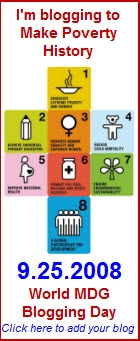Well, It’s a Start - Ethics I
I have had two nagging questions about this virtue-narrative ethic we have been working out of, both from the Truth book. First, with the emphasis on “radical sensitivity to suffering” that Middleton and Walsh propose as one of two “anti-totalizing” effects in the Biblical Meta-narrative, how do we explain some our (meaning, The Church’s) responsibility for causing others to suffer, whether directly or indirectly? Basically, this is a question about who gets to tell the story – if women had been the primary storytellers, I’m pretty sure we would have had women’s ordination long ago, and maybe (I’m only saying maybe here) we wouldn’t have launched the Crusades. So that’s question one. Question two is connected – How does this model deal with conflicting ideas of the narrative held by people who claim the same narrative? The two ideals that Middleton & Walsh have reduced the Biblical story to are great – but I doubt that everyone who claims the name of Christian would agree. So what are we to do with those disagreements? Luckily, the scholars are a step ahead of me here! Michael Budde begins to address these issues at the end of chapter four in The (Magic) Kingdom of God. He suggests that while the range of Christian stories in not infinite, it does not follow that there is only one version that can or should be told, heard, and lived. (p. 66) Sadly, this is about all Budde has to say on the topic of these criticisms. But he goes on to talk about the importance of passing on, receiving, and living the Christian faith. Maybe the answer is just patience – over time, the narrative will grow as saints are born, live and die. Of course, the answer for me always involves hope – hope that we are continually guided by the Spirit in our doings, and hope that we are able to count ourselves among those saints.
I've added a couple more folks to the links column: Jenni is a another seminarian, and Lizzie is a student at Vassar and a friend from home. Welcome ladies!

No comments:
Post a Comment